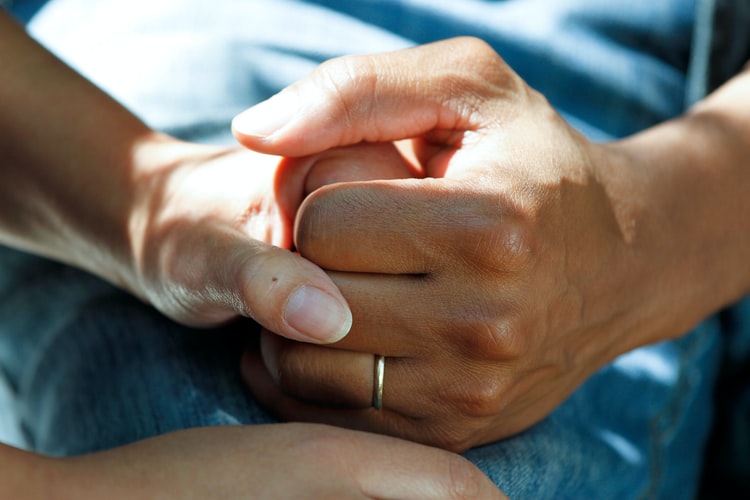World Cancer Day Special: What a Geriatric Cancer Caregiver Needs To Know
Today is World Cancer Day and here is all that a geriatric cancer caregiver must keep in mind while taking care of an elderly loved one.
When his wife got diagnosed with metastatic colon cancer at the age of 63 in 2017, West Bengal based Pranab Basu was 69 and became the sole caregiver to his wife for around two and a half years till she succumbed to the condition. Basu was retired and could devote time to taking care of his wife but being managing everything single-handedly at an older age resulted in burnout and emotional toll.
Bangalore-based Rajendra (name changed), 29 and his sexagenarian mother have been taking care of his 78-year-old father battling throat cancer since 2016. Managing expenses for the prolonged treatment over the last five years has been a major challenge for him.
The patients in the above cases suffer from geriatric cancer. By 2026, geriatric cancer is projected to be as much as 20 per cent and is anticipated to be one of the leading causes of morbidity and mortality in India, reveals the latest population-based survey. A report brought out by the University College of Medical Sciences, New Delhi has highlighted that caregivers for a majority of older adults suffering from cancer are their family members, trying hard day and night to take care of their elderly loved ones until their last day, often with very little help and support. On World Cancer Day, experts and caregivers of geriatric cancer patients share their challenges and coping advice with us.
Challenges faced by geriatric cancer caregivers
Basu who is now a volunteer certified counsellor for geriatric cancer caregivers and is associated with Eastern India Palliative Care Kolkata and various other caregiver support groups says: “Geriatric cancer or cancer at 60 plus by its nature is extremely challenging as it comes with a number of co-morbidities like Diabetes, Hypertension, Thyroid and more that makes the condition more complicated and caregiving tougher. It is as challenging as being forced to manage not one but many conditions at the same time. It leads to confusion and helplessness among caregivers, stress, anxiety, worries, frustration and a constant feeling of guilt about not being able to make the appropriate decision or take the best care of the elderly loved one. Above all, the lack of courage to see your loved one writhe in pain and yet not being able to help them much.”
Apart from emotional burnout, the other major barrier that hits most geriatric cancer caregivers is the burden of long-term expenses. “Taking care of the finances is no less tough compared to taking care of the loved one with cancer. Cancer treatment is not short spanned but extends until the last day of the one fighting it. Also, very few medical insurances are designed for supporting cancer treatments and in this area, there are lots to be done to make cancer treatment affordable for the middle class,” adds Rajendra.
Things a geriatric cancer caregiver must keep in mind
Bhavana Issar, CEO and founder of Caregiver Saathi, an organisation that creates an ecosystem of well-being and healing for a primary caregiver, enlists the top things that a geriatric cancer caregiver must be aware of.
Keep in mind the dignity and independence of your loved one: It is a must for a caregiver to connect with their loved ones and include their opinion in the care decisions on a regular basis, lend an ear to their wishes, unfulfilled desires and more.
Become their support system: One of the primary responsibilities of the caregiver is to build a physical and emotional infrastructure so that they feel supported and encouraged. Also, recognizing the emotional needs of the loved ones, as each person is unique.
Be mindful of your own wellbeing: Unless the caregivers remain healthy, both physically and mentally, they will not be able to carry on their role adequately. Caregivers are often seen to experience compassion fatigue, impatience or frustration. Being in touch with other caregivers, getting guidance on caregiving, learning how to be a caregiver and practicing how to process one’s emotions are critical for any caregiver.
Maintain effective communication with your loved one: One of the most significant residues of caregiving is regret or the feeling that one hasn’t done enough. So, making sure that the caregiver and the loved one who is being looked after are in regular authentic communication with each other and other family members is essential.
Seek help when required: Caregivers need to remember that it’s okay to take help. Caregiving does not need to be endured alone. Sometimes the help comes from extended family, sometimes from professionals and sometimes from others who have walked similar journeys.
Some tips that will make life easy for geriatric caregivers
- Be mindful of your overall well-being, daily routines and rituals. Take help from other family members, friends, professionals and experienced caregivers.
- Join support groups. Learn what it takes to be a skillful and compassionate caregiver. You may join group learning sessions or take individual coaching.
- “Make sure you know of advanced directives, living will of your loved one and you have clear instructions on how they wish to be treated, cared for. Some of these conversations are difficult and may need planning,” says Issar.
- Seeking palliative care support from the very beginning of the geriatric cancer treatment improves the quality of life of those suffering from geriatric cancer believes Basu who says, “While palliative care comes as a great relief for caregivers and good quality of life to the ones with geriatric cancer, it is unfortunate that only about 2 per cent of geriatric cancer patients have access to palliative care in our country. Above all, a caregiver must realise that love and compassion can heal pain and that physical presence and the touch of affection can pacify the elderly one suffering from cancer.”
Comments

Pranab Basu
25 Jun, 2014
So noble mission of Silver talkies bringing the primary caregivers , their role and challenges faced , into public so that they are identified without whom the patients remain uncared and death will be miserable. Thanks to Sreemoyee chatterjee for a sustainable conversation.
You may like to read:

Health and wellness
Five Lifestyle Changes To Ease Bladder Control

jessica smith
5 mins read

Health and wellness
Five things to keep in mind when considering organ donation

sunayana singh, ceo of organ india, an initiative of the parashar foundation
3 mins read

Health and wellness
How NURA Uses AI-Enabled Screening to make a difference in Preventive Healthcare

Silver Talkies
4 mins read



Post a comment